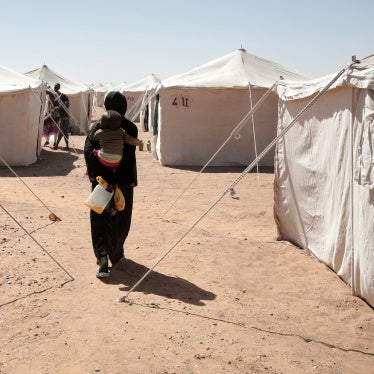(Geneva, March 26, 2015) – UN Human Rights Council members on March 26, 2015, took an important step in global efforts to protect privacy on the internet, as well as more broadly, Human Rights Watch said today. The council unanimously agreed to appoint a new UN special rapporteur, or expert, on the right to privacy.
“How privacy is protected online is one of the most pressing issues of our time,” said Eileen Donahoe, director of global affairs at Human Rights Watch. “Our hope is that the Human Rights Council resolution marks the beginning of a serious global reckoning with mass surveillance and its effects.”
The council’s decision was the culmination of sustained efforts by Germany and Brazil to bring new focus to threats to privacy on the Internet. President Dilma Rousseff of Brazil raised the importance of privacy in the digital context at the UN General Assembly in 2013 following reports that both Rousseff and Chancellor Angela Merkel of Germany were victims of US espionage. Following Rousseff’s address, UN institutions actively pursued the topic, with two resolutions in the General Assembly, a high-level panel at the Human Rights Council, and a report by the then-UN high commissioner on human rights, Navi Pillay.
The advancement in digital technology has had many positive social effects. But the inexorable move toward the digitization of information also has meant that governments have enhanced ability to monitor citizens’ movements, censor speech, block or filter access to information, and track communications, Human Rights Watch said.
Human rights defenders in particular increasingly face threats, insecurity, and attacks as a result of digital surveillance and collection of their personal data, Human Rights Watch said. Privacy is a gateway right that affects the ability to exercise almost every other right, in particular freedom of expression and freedom of assembly and association.
“When everything you say or do can be intercepted, monitored, or become the object of surveillance, it has a chilling effect on what people feel free to say, where they feel free to go, and with whom they choose to meet,” Donahoe said. “For human rights defenders, these questions are urgent because they often delve into problems or raise issues that governments would rather keep hidden. Their ability to do their work is at risk, as is their basic safety and the safety of victims and witnesses.”
The new special rapporteur has a broad mandate to cover all aspects of privacy and will be able to take on these concerns through a variety of means, including:
• systematically reviewing government policies on interception of digital communications and collection of personal data and pinpointing policies that intrude on privacy without compelling justification;
• identifying best practices to bring global surveillance under the rule of law and helping ensure that national procedures and laws that have bearing on privacy are consistent with international human rights law obligations;
• examining private sector responsibilities to respect human rights under the “Protect, Respect, Remedy framework” of the UN Guiding Principles for Business and Human Rights, in the specific context of digital information and communication technology;
• helping develop international norms that more effectively address the interaction between privacy, freedom of expression, and other human rights in the digital context; and
• bringing focused attention to factors that facilitate overbroad surveillance, including widely varying practices and levels of transparency about what data businesses retain, and how those practices in many instances have a direct bearing on what governments are able to collect and monitor; and working with other UN experts on protecting free expression, freedom of peaceful assembly and association, and human rights defenders, to identify specific threats to rights in the context of indiscriminate mass surveillance, leading to a more comprehensive approach to the protection of privacy.
“The appointment of a UN expert on privacy in the digital age means that we now have someone to watch those that are watching us,” Donahoe said.







